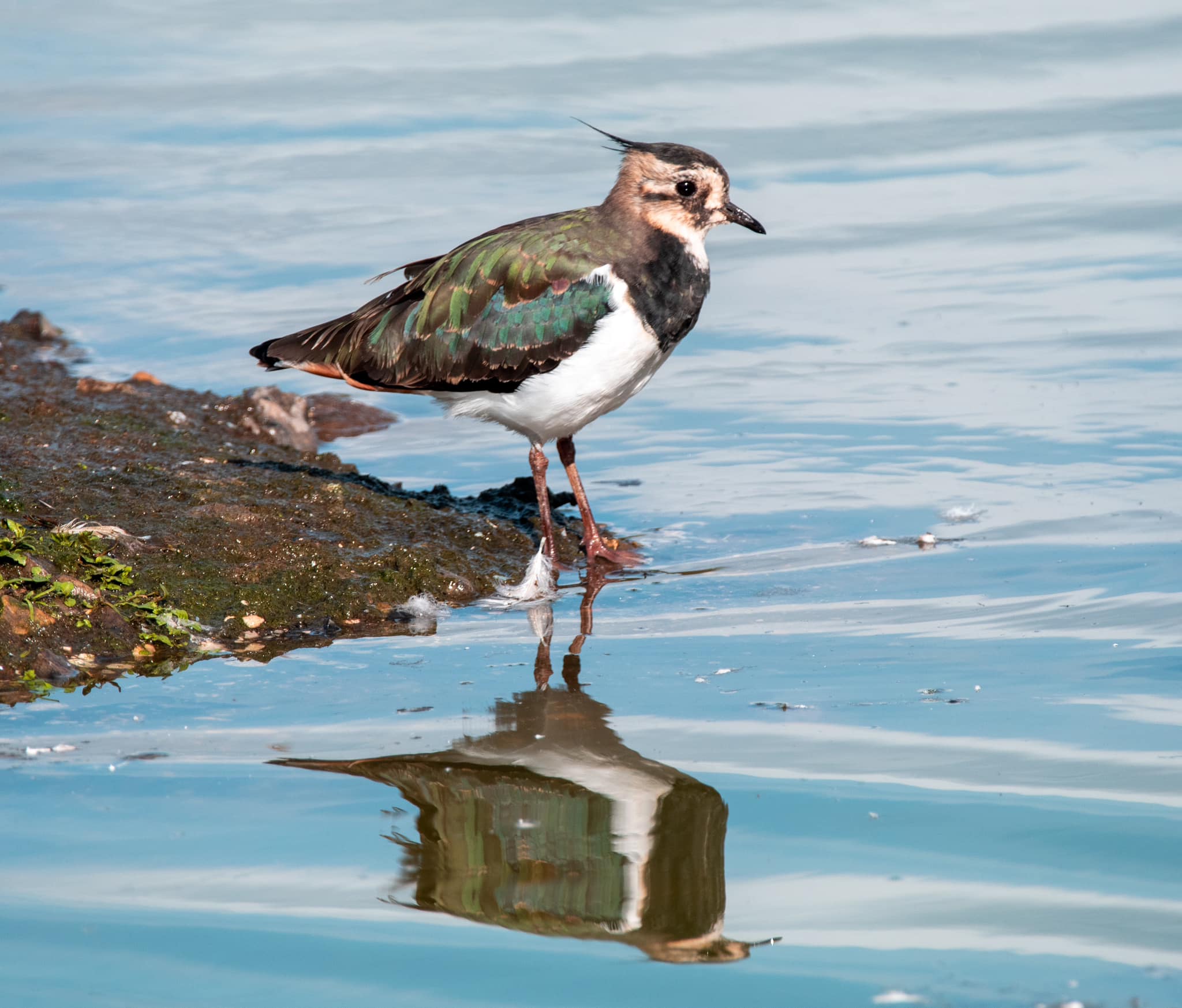
4 minute read
Cause for hope for nature’s recovery in Wiltshire
By Joanna Lewis, new CEO of Wiltshire Wildlife Trust
I feel so privileged to be taking over the reins from Gary Mantle as CEO of Wiltshire Wildlife Trust, after his amazing 33 years of service.
I have looked at The Wildlife Trusts movement for some time now with huge admiration and no small degree of envy. To be so rooted in what matters to local communities, so powerfully supported by an army of volunteers, so dynamic in developing nature-based solutions across the movement, and so effective at calling Governments to account at the national level… It’s a winning combination.
It needs to be, of course, now more than ever. The State of Nature 2023 report confirmed that there is no let-up in the decline of the UK’s wildlife – not good news when we are already one of the most nature-depleted countries in the world. What stands out for me is the tragic decline of much-loved species like dormice, hedgehogs and skylarks. We scan the skies in vain for returning swifts and celebrate occasional sightings of birds, like yellowhammers that used to throng the hedgerows.
It may surprise you, then, to hear that I am full of hope.
That’s because there has never been a stronger consensus on the need to transform our food and farming system to work for nature and the climate alongside resilient, healthy food production. That matters because the evidence is clear that intensive farming practices have been the single biggest driver of nature’s decline.
Nationally, it is a major breakthrough that we have a legal target to reverse biodiversity loss by 2030 and cross-party commitment to use public money to reward farmers for improving our environment. Our number one manifesto ask for the General Election is now to double that farm budget to match the scale of need for nature-friendly farming.
Wiltshire is above all a farming county, and there’s a huge opportunity for a new generation of nature-friendly farmers – learning from the organic pioneers – to lead the way to nature’s recovery in Wiltshire. It fills me with hope to meet so many farmers who are taking huge pride in regenerating their soil, making nature a co-worker and reducing their reliance on costly agrichemicals year on year.
This is nature-friendly farming in the middle of the fields, not just in the field margins. It has the potential to transform whole landscapes, not just individual farms. The Trust is already working with the Braydon Forest and Bremhill Vale farmer clusters to protect curlews, lapwings and tree sparrows, and encourage them back to breed (see p.6). We are also partnering with the Wylye Valley Farmers to help restore the internationally important Wylye chalk stream. Our Bristol Avon Catchment Market is giving landholders in that catchment the opportunity to secure a meaningful income from nature-based projects on their land (see main image), and we will be rolling out that approach right across the county.
Strategic partnerships like these will be fundamental to achieving our new ‘Wilder Wiltshire’ Strategy, including our headline goal of 30% of land well managed for nature by 2030.
So, I am full of hope that we can help farmers across Wiltshire and Swindon find a resilient and profitable pathway to nature-friendly farming.
I am also full of hope that we can bring nature back into people’s daily lives in Wiltshire and Swindon in a way that can transform our health and happiness.
One of the reasons I am so excited to be joining Wiltshire Wildlife Trust is that it has an amazing track record of making a difference for people as well as nature. The Trust has shown, through our Care Farms and Forest Schools, how nature therapy can give hope to young people struggling with mental ill-health and special educational needs.
Our Youth Education and Wellbeing team create opportunities for thousands of children to get outdoors and learn in nature, whether in their school grounds or on one of our flagship nature reserves.
Now, with our new Strategy to 2030, we are committed to giving every child in Wiltshire and
Swindon that opportunity, in a way that can spark a lifelong connection with nature. As David Attenborough so powerfully said, “No one will protect what they don't care about; and no one will care about what they have never experienced.”
I am particularly excited about our Young Ambassador programme, giving a platform and opportunities to an impressive new generation of nature leaders.
The challenges for Wiltshire’s wildlife are great, but I truly see more opportunities than ever before. We can achieve nature’s recovery in Wiltshire and Swindon, and we can mobilise more people than ever to take meaningful action for nature.











